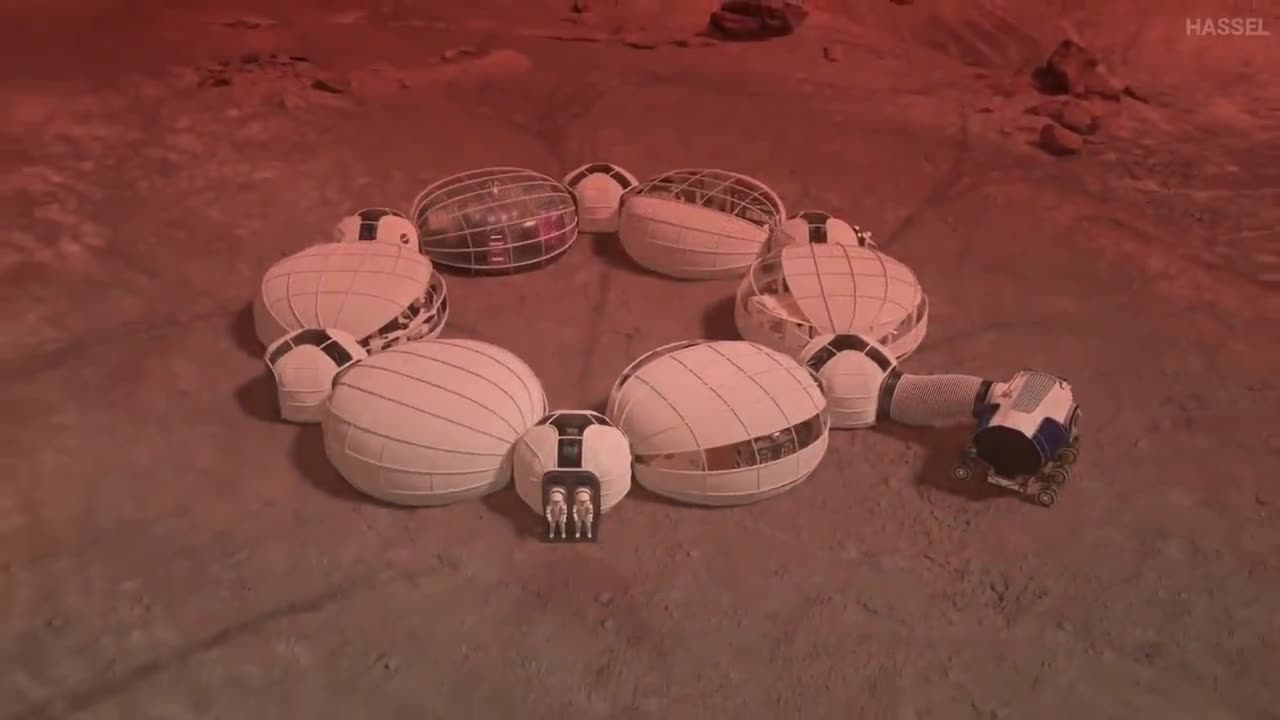Premium Only Content

This is how first human being lives on Mars
Living on Mars is a complex challenge that would require significant technological advancements and careful planning. While there hasn't been a human settlement on Mars as of my last knowledge update in September 2021, here's a description of some key considerations for how humans might eventually live on Mars:
Habitats: Martian habitats would need to be designed to protect inhabitants from the harsh environment, including extreme cold, radiation, and low atmospheric pressure. These habitats could be constructed on the surface, underground, or in domed structures.
Life Support Systems: Self-sustaining life support systems would be essential to provide oxygen, remove carbon dioxide, and recycle water and nutrients. This would reduce reliance on Earth resupply missions.
Food Production: To sustain a Martian colony, methods for growing food on Mars would be crucial. This might involve hydroponics, aeroponics, or other advanced farming techniques that can operate in Martian soil or hydroponic systems.
Energy Generation: Solar panels could be used to capture energy from the sun, but backup power sources or advanced energy storage systems would be needed to provide electricity during Martian dust storms, which can obscure sunlight for extended periods.
Transportation: Regular transportation between Earth and Mars would be required for supplies, personnel, and scientific missions. Developing efficient spacecraft and launch systems is essential.
Radiation Protection: Mars lacks a strong magnetic field and thick atmosphere, which means it receives more radiation from space than Earth. Radiation shielding for habitats and spacesuits is essential to protect human health.
Resource Utilization: Utilizing Martian resources, such as water ice for drinking and oxygen production, would reduce the need to transport supplies from Earth. This might involve drilling for subsurface water or extracting resources from the Martian atmosphere.
Healthcare: Medical facilities and equipment would be necessary to address health issues that could arise in the Martian environment, including the long-term effects of reduced gravity on the human body.
Psychological and Social Factors: Living on Mars would present psychological challenges due to isolation and confinement. Strategies for maintaining mental health and social well-being would be crucial.
Legal and Ethical Considerations: Establishing a legal framework for Martian settlements, including property rights and governance, would be important for long-term sustainability.
It's worth noting that various space agencies, including NASA, and private companies like SpaceX, have been actively researching and planning for potential human missions to Mars. However, the timeline for establishing a permanent human presence on Mars remains uncertain and would likely be a multi-decade endeavor.
-
 1:00:31
1:00:31
FreshandFit
9 hours agoWe Are In A Recession...Do This Now!
2.22K24 -
 LIVE
LIVE
Side Scrollers Podcast
1 day ago🔴SIDE SCROLLERS FUND-A-THON🔴DAY 1🔴100% REVENUE HELPS CHANGE CULTURE!
1,244 watching -
 3:03:39
3:03:39
Barry Cunningham
8 hours agoPRESIDENT TRUMP HAS A MAJOR WIN AND HIS TEAM IS ABSOLUTELY UNLEASHED!
67935 -
 58:59
58:59
Flyover Conservatives
1 day agoThe Agenda Behind No Kings — They Lied. They Funded It.; Silver Explosion FAR from Over, PhD Explains What’s Next and Why! - Dr. Kirk Elliott | FOC Show
4.53K4 -
 1:55:03
1:55:03
We Like Shooting
17 hours agoWe Like Shooting 633 (Gun Podcast)
106 -
 1:32:29
1:32:29
Glenn Greenwald
9 hours agoNo Kings Protests: A Partisan Pro-DNC Circus; The Trump Admin's Escalating Strikes on "Drug Boats" and Militarization of the Caribbean | SYSTEM UPDATE #534
17.4K83 -
 3:49:31
3:49:31
SOLTEKGG
6 hours ago🔴LIVE - BATTLEFIELD 6 W/ SOLTEK
-
 3:46:40
3:46:40
VapinGamers
5 hours agoBattlefield 6 - Gettin My Body Ready for BR and Other Funzies with Friends - !rumbot !music
-
 41:43
41:43
MattMorseTV
7 hours ago🔴It’s ACTUALLY HAPPENING…🔴
3.65K103 -
 4:34:30
4:34:30
Putther
5 hours ago🔴LIL WILLY RETURNS TO GTA RP